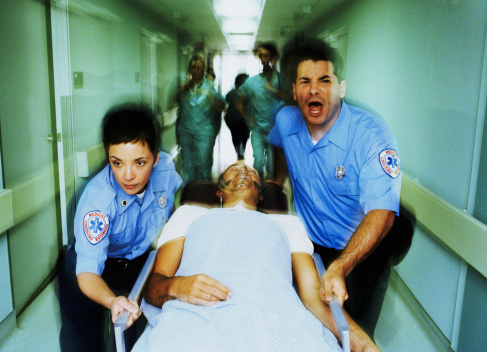
 In developed countries, Emergency Medical Technicians play a very important role and in most countries are given proper training and education on how to deal with emergency situations. There are several levels of EMT training given to individuals who wish to take up EMT as a career option, writes Dr Santosh Datar, Medical Director, Ziqitza Healthcare Ltd, in this insightful article.
In developed countries, Emergency Medical Technicians play a very important role and in most countries are given proper training and education on how to deal with emergency situations. There are several levels of EMT training given to individuals who wish to take up EMT as a career option, writes Dr Santosh Datar, Medical Director, Ziqitza Healthcare Ltd, in this insightful article.

Emergency Medical Services (EMS) in India is growing exponentially and across geographies. The EMS scenario in India has changed drastically and has progressed from being a first-aid help to saving the day in case of any medical emergency. It has grown from being available in urban areas to becoming accessible pan-India, especially in rural areas. EMS is rapidly evolving as an essential part of the healthcare system.

An Emergency Medical Technician (EMT) is a trained clinician, who is equipped to respond quickly and handle all medical emergencies, traumatic injuries and accidents. These technicians are also trained in the operation of the ambulance. EMTs check the patients condition to see what care needs to be administered in the given case while taking into account the patients pre-existing medical conditions.

EMTs are most commonly found working in ambulances, but should not be confused with ambulance drivers or ambulance attendants. EMTs are often employed by private ambulance services,governments, and hospitals. They operate under a limited scope of practice. EMTs are normally supervised by a medical director, who is a physician. Some EMTs are paid employees, while others, particularly those in rural areas, are volunteers.

In developed countries, EMTs play a very important role and in most countries are given proper training and education on how to deal with emergency situations. There are several levels of EMT training given to individuals who wish to take up EMT as a career option. These levels are Basic, Intermediate and Paramedic, to name a few.
In India, there is a major need of Emergency Medical Technicians. One has always heard of accidents, injuries, mishaps happening on the roads. There are still many people who notice an accident and not do anything about it. There are always issues of ambulances reaching late, people not helping the victim, etc. EMTs are people who act like lifesavers when such incidents occur. In many cases, there are ambulance attendants who have no idea of what has happened to the victim/patient. They do not realize that their duty is not only to transport the patient to the hospital but also provide proper care till the time of treatment. Hence, there is a need for trained EMTs in India.
Technologies used for healthcare these days are up-to-date. There is new equipment used in every field of healthcare. When it comes to ambulance care, here are new technologies but not all ambulance attendants know how to utilise them.
If there were trained EMTs, ambulance care would be better. In India, we need courses and training for EMTs like other countries. Having EMTs will make accidents, injuries and trauma care efficient. EMTs need to be technically sound since they are the lifesavers. India is seeing a fast growth in Emergency Medical Services so we will need Emergency Medical Technicians as well. Another reason why we need EMTs is to improve the quality of life perseverance in India. Accidental deaths are looked down upon in India. If a person is injured on the streets, people tend to ignore the situation and walk away.
If we have trained EMTs who are aware of how to treat a person in case of an accident or injury, the chances of survival is better. Hence, the government and educational institutes should promote education for trained EMTs. Also, EMS service providers should invest in training employees so that they can serve as equipped paramedics and help in the cause of saving lives.
(The views and opinions expressed in this article are those of the authors and do not necessarily reflect the official policy or position of eHEALTH magazine)
Be a part of Elets Collaborative Initiatives. Join Us for Upcoming Events and explore business opportunities. Like us on Facebook , connect with us on LinkedIn and follow us on Twitter , Instagram.
"Exciting news! Elets technomedia is now on WhatsApp Channels Subscribe today by clicking the link and stay updated with the latest insights!" Click here!
















